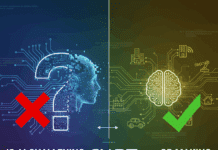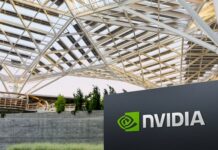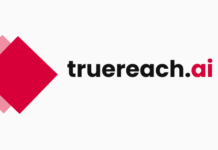Every year, Software Freedom Day (SFD) celebrates free software across the world. The aim is to increase awareness of free software and its virtues, and encourage its use. This year, SFD was celebrated on September 16. Frederick Noronha caught up with Jurgen Gaeremyn, member of the Digital Freedom Foundation (the charity behind Software Freedom Day), to ask some pertinent questions about the history of the event, and its evolution over the years.
Jurgen Gaeremyn, member of the Digital Freedom Foundation, wrote in to say: “In June of this year, I offered to help launch Software Freedom Day (SFD) globally. I found your name when searching through the first years of Software Freedom Day, and your account was the oldest one (apart from the founders) I could find in my list. Back in 2005, you were writing for BytesForAll.”
Jurgen says that the SFD team and its supporters in different pockets of the globe are celebrating the 20th edition of Software Freedom Day this year. “Thanks for being one of the very first supporters of SFD, and two decades later still standing for open source software, open data and open culture!”
Seizing the opportunity, I sent across some queries. Here is an excerpt of the exchange.
FN: How has SFD grown or changed over the years (since I last knew it)?
JG: Actually, SFD started back in the time when every self-respecting computer magazine offered a CD with some freebies on it. Back then Matt Oquist decided that burning a CD with actual free software (contrary to the freebies or trial versions on those other CDs) could add much value. He teamed up with Henrik Omma and Phil Harper and they decided to promote this OpenCD project all over the world. Things moved quickly from there.
Software Freedom Day actually reached its peak in 2008, when it was celebrated in at least 563 registered locations all over the world.
In 2010, Frederic Muller took over the initiative and widened the project, reflecting emerging changes. Broadband internet connections were becoming commonplace, and focal points were added — hardware freedom (think of the first Arduino boards that came out around 2011), document freedom (and open standards), and education that was also being impacted more and more through software platforms.
On May 27, 2019, a tragic accident took the life of Patrick Sinz, one of the board members at that moment. This was a heavy blow for the other board members, who were a close team of friends. Then came the global pandemic and organising events in 2020 and 2021 was nearly impossible. Even last year, there clearly still was a lot of reluctance to organise big events.
So now, in 2023, the existing board decided to hand over the project to a new team of volunteers. We started the launch of the 2023 edition of Software Freedom Day in June this year.
For the coming years, we’ll be looking at offering a more centralised and functional online platform where communities can share their content for Software Freedom Day. We’ll also be reaching out to sponsors who will offer tools empowering teams to organise their own events. Combining physical events with online access to presentations and workshops might be the way to go.
Oh and don’t get me started about AI and how open source will be important there too, or we’re off for another hour or two…
FN: How have the celebrations for this year shaped up?
JG: Where the first era was mainly about handing out swag like physical CDs and stickers, today it’s more about building the community and offering online tools that are privacy-respecting.
For example, what are the trade-offs for putting all your documents, photos and personal mails in corporate owned vaults? Are there options to have your private cloud? Explaining how offline tools like LibreOffice on your computer don’t need an internet connection, or showing how to stream not only to the major platforms but also to decentralised content providers might become essential skills.
The Muse Group, for example, has a nice approach to music notation. They have an open source application (Musescore) that is fully featured, and is free to download and modify. To make it commercially viable, they also have an online platform MuseScore.com, where they offer sheet music for download and online music courses. They are actually sponsoring Software Freedom Day this year, and the team writing the best Software Freedom song will be awarded a year of access to this service.
We have connected with some other sponsors too, to send out prizes to SFD teams who excel in a specific field.
FN: What are the challenges the organisers were faced with this year? Can the community help?
JG: Because we were a little late to the game, there wasn’t a lot of build-up to this event. But we always need help from the open source community to make some noise about it, and also start up events locally.
Even if you don’t arrange big events, you could meet up with a class group in the local library to showcase your favourite open source drawing tool. Or maybe there’s a hackerspace in your area that would like to teach how to program home automation using open source tools. Even if you’re on your own, prepare a recording or live stream that you put out. Plenty of ideas — it’s just a matter of finding a few friends and starting something.
There are other small things that can be done too:
Follow us on social media (we’re on Mastodon, Facebook, Twitter and occasionally also on other platforms) and share.
Put our interactive banner on your website.
If you’re a company using or producing open source software, reach out to us at info@digitalfreedomfoundation.org if you’d like to sponsor a team (or all teams) in upcoming editions of Software Freedom Day with your tool.
FN: One or two inspiring stories from the past 2-3 years?
JG: That’s a tough one… the last few years were pretty rough with Covid. But during these years, I was organising Software Freedom Day in our local hackerspace.
In 2021, I was very inspired by the people from OpenStreetMap, and how they managed to mobilise a worldwide community to create maps that are freely available. We had the lead developer of FreeCAD who came to give an advanced talk on scripting in FreeCAD. He’s a professional architect creating all his designs in FreeCAD. Just before that, one of our members gave an introduction on how to use that same program for 3D printing. I was touched by the versatility of FOSS and how different people use it in very different ways.
Last year there was an interesting talk about IoT, and how you could examine an existing device and intercept the traffic to go to your own server instead of to some cloud service.
FN: What is SFD’s ultimate goal, and has it evolved over the years, considering that the focus on ‘freedom’ seems to have somewhat waned over time?
JG: Software freedom is, and has always been, a mindset — it’s about believing in the importance of the four freedoms: the right to freely use software, to study it, to share it, and to alter it to your own needs.
While these four freedoms have remained the same, the reasons and accents have shifted. In the beginning of the millennium, it was all about having access to the tools. There were the haves and the have nots. I still remember walking in a Hong Kong market square, where they sold CDs with all the software you could imagine for a few HK$. Obviously illegal, but that was hardly relevant there at that time. It was all about getting equal opportunity.
Nowadays, more and more software come as a (cloud) service — some are free, some pretty expensive. The IoT connects everything to the internet — from doorbells to thermometers, and even light bulbs. The four freedoms are now to be seen in conjunction with our right to privacy and security.
With the recent rise of AI in commercial applications, it will become equally important to have transparency of data sets, weightings, and algorithms if we want to ensure a fairly biased AI. It is also high time to think about decentralisation, prevention of vendor lock-in, open standards, transparency and the freedom to modify into these systems.
FN: What has been the response of India in particular and South Asia in general to SFD?
JG: In Southeast Asia, events have been organised in Kathmandu and Phnom Penh.
It is surprising that the booming country of India is still missing though… Maybe your city can make the difference?
| Note: You can connect with Jurgen Gaeremyn on +32496459541 through WhatsApp or Signal, or email him at jurgen@digitalfreedomfoundation.org. |















































































